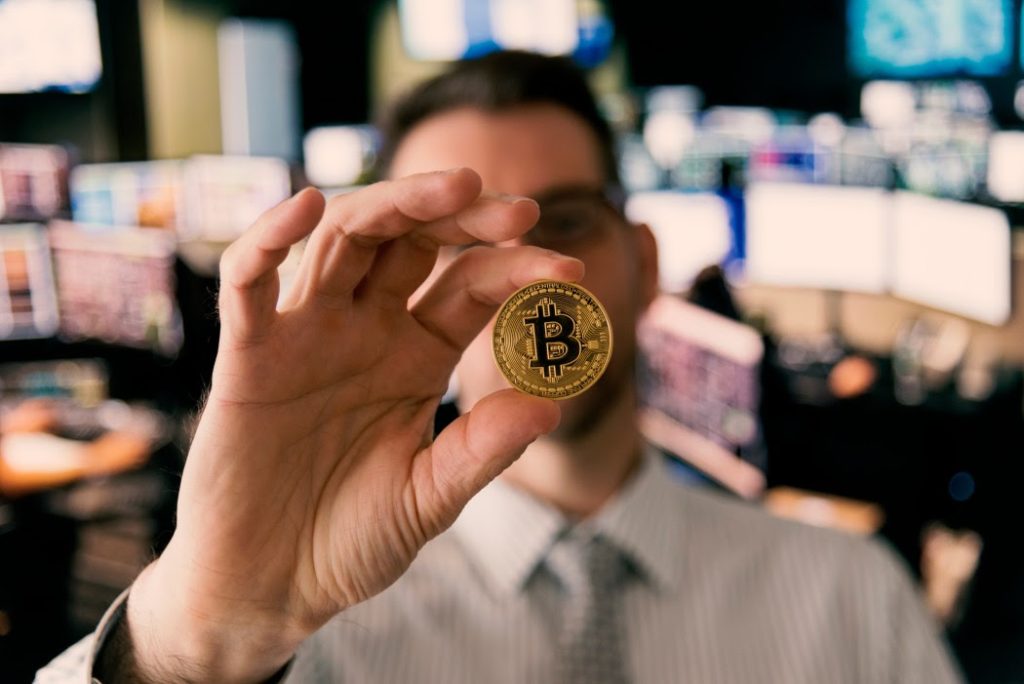But are cryptocurrencies too volatile to be used as legal tender?
When cryptocurrencies like Bitcoin first became a thing, there were plenty of people who predicted they would become a new-and-improved replacement to the regular money we currently use in our day-to-day lives. That's because cryptocurrencies have several unique properties. Perhaps the biggest one is that they’re usually decentralised, which means they can’t be controlled by governments or other state entities like central banks.
This is in contrast to the money we currently use (official term: fiat currency) which is created, authorised and heavily influenced by the state. This allows the state to do things that may be disliked or be harmful to some of the people who own some of the fiat currency.
Governments can impose capital controls, which stop people taking their money out of a certain area (usually the country). They can also impose regulation on what people can and can’t buy with that money (no illegal drugs, for example). And governments and central banks can also deliberately or unintentionally affect how much ‘purchasing power’ money has (how much stuff you can get with it) because they have a hand in things like currency devaluation (changing the exchange rate) and the inflation rate (how quickly prices go up).
Of course, not everyone agrees that the state imposing rules and regulations on fiat currencies is a bad thing. And being state-backed also helps keep fiat currencies stable. Generally, people will only be happy to swap money for a good or service if they have faith that the value of that money will not change anytime soon. With fiat currencies, governments and central banks are essentially acting as guarantors of this, because they can - and almost certainly will - step in if prices start to go haywire.
Of course this set up only works if the state itself is seen as trustworthy or economically competent, which isn’t always the case. But with decentralised cryptocurrencies there is no such backing at all. In practice, this means the value of cryptocurrencies are often all over the place. One Bitcoin was worth £196 in October 2013, £13,062 in December 2017, £3,773 in February 2019 and £58,735 in March 2021. Imagine if your monthly salary fluctuated to the same sort of extremes. How certain would you feel that you would be able to pay your bills in any given month?
This volatility is why cryptocurrency has never really taken off as an actual unit of exchange, bar some - often illicit - types of transactions (think buying drugs off the dark web or paying ransoms to cybercriminals). But some people believe that’s about to change, because of recent efforts to tie the value of cryptocurrencies to something tangible. So-called ‘stablecoins’ are types of cryptocurrency whose value is linked to trusted assets such as the US dollar (so one cryptocoin = $1, for example). ‘Govcoins’ are cryptocurrencies that are created and backed by governments (essentially, electronic fiat currencies). Even the old-school cryptocurrencies like Bitcoin aren’t necessarily out of the race: El Salavador has just become the first country in the world to accept Bitcoin as legal tender.
In theory that means that all businesses and workers in the country have to accept payment in it. In reality, this seems unlikely to happen anytime soon. 96 percent of Salvadoran entrepreneurs said that accepting Bitcoin shouldn’t be mandatory, and 92 percent of Salvadorans generally didn’t know that it was mandatory. It’s also not clear that being implicitly backed by El Salvador will be enough to stop Bitcoin’s volatility. A fortnight after making Bitcoin legit, the country's President felt obliged to buy the equivalent of $6.7 million-worth of Bitcoin over a single weekend, in order to reverse a relatively small dip in Bitcoin’s value. He tweeted that ‘buying the dips’ in this way would mean Bitcoin holders would never lose money. But it’s not clear if, in the event of a much larger price crash, the country, which has the 104th wealthiest economy in the world, would have the resources to bail out a currency it does not create or control.
Read our explainer on: the currencies of tomorrow.

